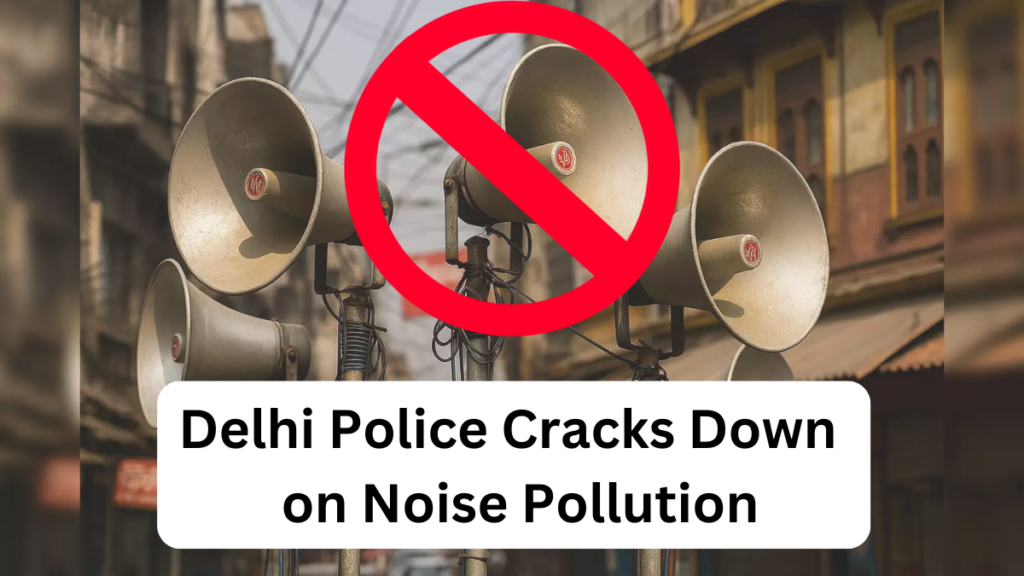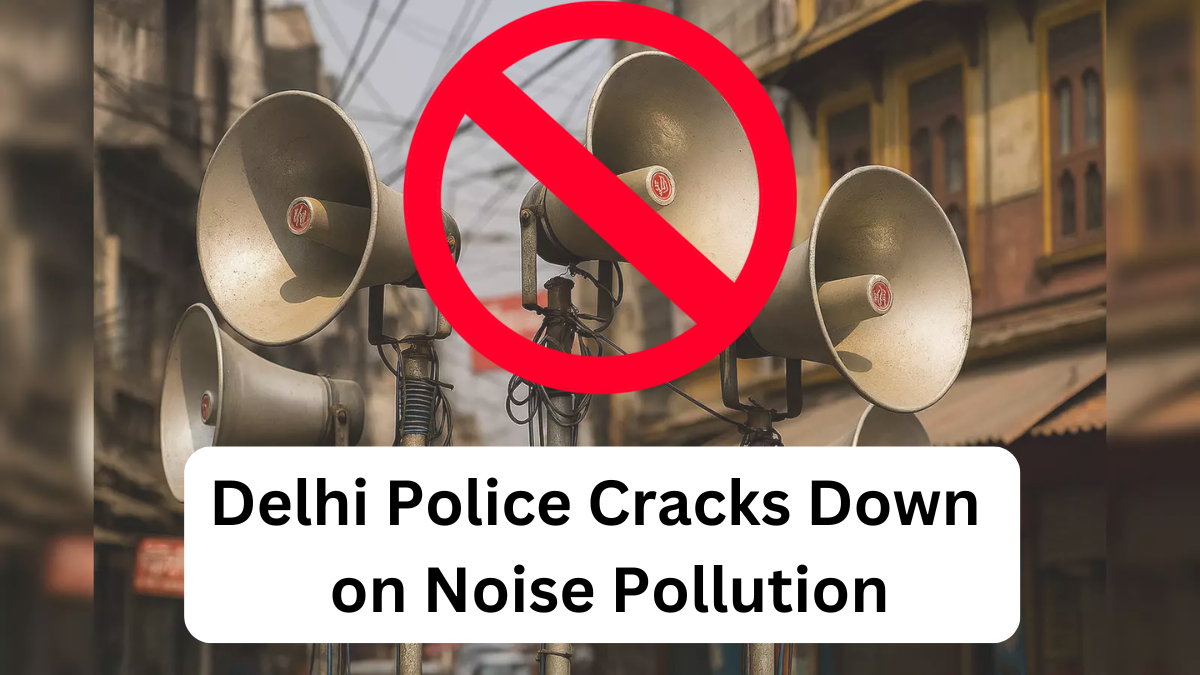In an effort to create a more peaceful and livable urban environment, the Delhi Police has issued a new standing order that mandates prior written permission for the use of loudspeakers or public address systems in any part of the city. This order is part of a broader move to enforce the Noise Pollution (Regulation and Control) Rules, which aim to curb growing noise disturbances from both public and private sources.

Understanding the Directive: What’s Changing?
Delhi has been grappling with increasing levels of noise pollution, often caused by loudspeakers, sound systems at social events, diesel generators, and construction equipment. The newly issued order introduces strict rules for their use, emphasizing the importance of noise regulation across residential, industrial, and silent zones.
Key Changes You Need to Know:
-
It is now mandatory to obtain written permission before using loudspeakers, sound amplifiers, or any public address system in public spaces.
-
Night-time restrictions apply from 10 PM to 6 AM, during which no sound-emitting equipment can be used unless it is:
-
Inside closed spaces like auditoriums, community halls, or banquet halls
-
For emergency purposes such as disaster response or critical announcements
-
-
Even renting sound equipment from tent houses now requires a written approval from the local police station.
Responsibilities for Equipment Suppliers
The directive places clear obligations on tent house and generator suppliers. They are prohibited from renting out loudspeakers, amplifiers, or diesel generators unless the customer can show valid written permission from the local police.
Additionally:
-
If suppliers are found to be non-compliant, District Deputy Commissioners of Police (DCPs) have been instructed to take strict legal action, which could include fines or business restrictions.
Permissible Noise Levels in Delhi
To maintain a uniform and enforceable framework, the Delhi Police has outlined specific permissible noise levels based on area types and time of day.
Noise Limit Table:
| Area Type | Daytime (6 AM – 10 PM) | Nighttime (10 PM – 6 AM) |
|---|---|---|
| Industrial Zone | 75 decibels (A) | 70 decibels (A) |
| Residential Area | 55 decibels (A) | 45 decibels (A) |
| Silence Zones | 50 decibels (A) | 40 decibels (A) |
| Loudspeaker/Public Address Boundary | 10 decibels (A) above ambient standard or 75 decibels (A), whichever is lower | |
| Privately Owned Sound Systems | 5 decibels (A) above ambient level |
These limits are in accordance with the ambient noise standards prescribed by the Central Pollution Control Board (CPCB).
Penalties for Violations: What Happens If You Break the Rules?
The Delhi Police has implemented strict financial penalties for anyone violating the noise control regulations. These penalties are applicable to individuals, event organizers, commercial venues, and equipment providers.
Fines and Enforcement Actions:
| Violation Type | Fine Amount |
|---|---|
| Unauthorized use of loudspeakers or amplifiers | ₹10,000 + possible equipment confiscation |
| Diesel generator set over 1000 KVA | ₹1,00,000 |
| Generator set between 62.5 and 1000 KVA | ₹25,000 |
| Generator set up to 62.5 KVA | ₹10,000 |
| Noise from construction equipment | ₹50,000 + equipment sealing/confiscation |
| Bursting firecrackers outside allowed hours | Variable fine based on noise level |
| Loud events in residential areas | ₹10,000 |
| Loud events in silence zones | ₹20,000 |
These fines are not just financial deterrents—they may also be accompanied by legal action and seizure of sound equipment.
Full-City Implementation and Monitoring
The order is not symbolic—it will be actively implemented. The Delhi Police has announced that enforcement teams in all 11 districts will ensure compliance with the new rules. Citizens can expect increased patrolling and on-the-spot inspections during weddings, political rallies, public meetings, religious events, and private functions.
Moreover, a mechanism will be put in place for residents to report violations to local police stations or through helplines. This initiative reflects a serious intent to restore peace in neighborhoods affected by chronic noise disturbances.
FAQs:
1. Do I need permission to use a loudspeaker during a religious function held in a public place?
Yes, even religious events held in public areas like parks, roads, or open grounds now require prior written approval from the local police station.
2. What if I use a speaker at a private party in my house during daytime hours?
While daytime use inside your own home may not require permission, if the sound crosses permissible decibel levels or disturbs neighbors, you may still be penalized. Written permission is advised if the equipment is loud enough to be heard outside your premises.
3. Are wedding DJs and band players allowed to use loudspeakers without police clearance?
No. Weddings in open spaces or community grounds must comply with the noise limits, and sound equipment use requires prior permission, regardless of the event type.
4. What happens if my tent supplier gives me loudspeakers without checking for police approval?
Both the supplier and the event organizer can be held responsible. Suppliers may face legal action, including fines and seizure of equipment, under this order.
Final Thoughts
With this new directive, the Delhi Police is taking a firm step toward reducing noise pollution, ensuring that residents of the capital can enjoy a quieter, healthier living environment. Whether you’re planning a celebration or simply renting sound equipment, it’s crucial to stay informed and follow the rules.
Click here to learn more
Sachin is a dedicated writer specializing in education, career, and recruitment topics, delivering clear and actionable insights to empower readers.
